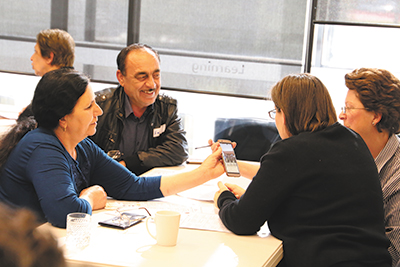Language is often a barrier for people from different backgrounds, but a Wagga Wagga City Library program is bringing the New South Wales (NSW) community closer together through the power of conversation.
There have been more than a thousand visits to the Language Cafe, which marks its first anniversary this week.
Library Manager, Claire Campbell, said with Wagga Wagga being a both a Refugee Welcome City and resettlement area, there is a growing Cultural and Linguistic Diverse (CALD) community that now makes up six percent of the city’s population.
“The Wagga Wagga community has 99 language groups and through the Language Cafe we are assisting everyone from new arrivals to Australia and skilled migrants.
“The first Language Cafe in July 2017 had 13 people from nine language backgrounds with five volunteers. Over the past year there have been 1038 visits and we now have 40 volunteers.
“The participants have come from more than 30 countries of origin such as Syria, Irag, Iran, Korea, China, India, Japan, Sri Lanka, Burma, Spain, Afghanistan, Mexico, Pakistan, Indonesia and Columbia.
“Over the past year the Language Cafe shows the power libraries have to bring people together to foster lifelong learning and bring different parts of our community together.”
The library’s Language Cafe has evolved with even more CALD programming opportunities now available, such as Arabic language classes for children held on Saturdays; Tech Savvy Senior computer classes in Mandarin, Arabic and Dari and a Persian Language Book Club.
The library also has a Community Languages Collection of more than 2600 books from the State Library of NSW, featuring adult and children’s books in 14 different languages – Arabic, Chinese, Persian, Sinhalese, Vietnamese, Sri Lankan, Hindi, Tamil, Tagalog, Burmese, Urdu, Croatian, Serbian and Kurdish.
“Not only can our diverse community practice their English in real conversation, they can also stay connected with their own cultural identity by borrowing books and DVDs in their native language.”

















